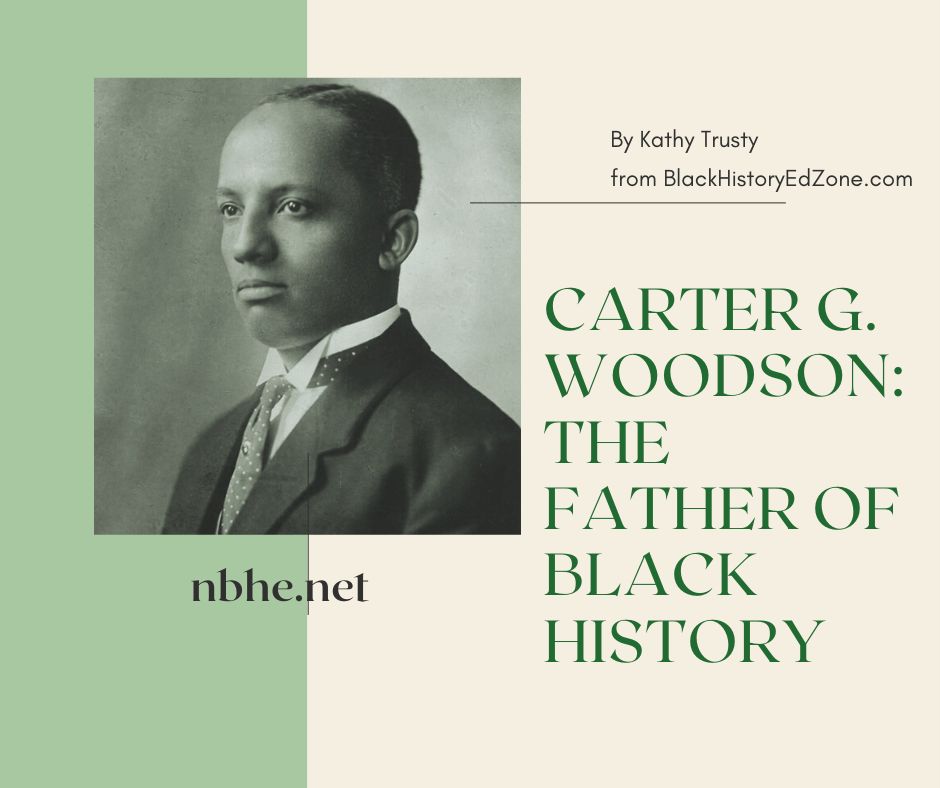
Carter G. Woodson: The Father of Black History
When Carter G Woodson was working on his doctorate at Harvard University it became apparent that Black history was not a logical topic for research. There was a scarcity of data and facts on Black Americans. The study of Black life and culture was limited to slavery. Moreover, the public was not aware of the contributions and achievements of Black Americans. Woodson realized Black history was a “negligible factor” in American history.”
In 1915 he founded the Association for the Study of Negro Life and History, which is now the Association for the Study of African American Life and History (ASALH).
Woodson believed life in the United States could not be fully and correctly understood without studying the contributions of Black Americans.
The mission of ASALH is to promote, research, preserve, interpret and disseminate information about Black life, history and culture.
Carter G Woodson was born in New Canton, Virginia. His parents who were formerly enslaved, were farmers. Young Woodson worked on the farm alongside them.
Woodson only attended school on days when the weather was too bad to work the farm. He was mostly self-taught and did not enter high school until he was almost twenty.
After completing his high school courses in two years, Woodson enrolled in Berea College in Berea, Kentucky.

Berea College was founded by the abolitionist John G. Fee in 1855. Berea was the first interracial and coeducational college in the south. Woodson graduated from Berea in 1903, the year before the Day Law was passed forcing racial segregation by forbidding interracial education.
The Day Law
On January 12, 1904, Kentucky State Representative Carl Day introduced House Bill No. 25, entitled “An Act to Prohibit White and Colored Persons from Attending the Same School.” The bill passed and remained in effect until it was amended in 1950.
After Berea, Woodson attended the University of Chicago where he received a master’s degree in history in 1908.
In 1912 he became the second African American to receive a PhD from Harvard University. The great intellect, W.E.B Du Bois was the first.
Carter G Woodson was an author, historian and educator. He dedicated his life to researching and publishing books and journals on African American life and history. He encouraged others to study the history of Black Americans and he worked to increase public awareness of Black history.
In 1926 Dr. Woodson created Negro History Week to celebrate the accomplishments and achievements of Black Americans. He selected the week that encompassed the birthday of Abraham Lincoln and what is accepted as the birthday of Frederick Douglass. He hoped to tap into the celebratory spirit of the country on the birthdays of those two men.
In 1976, Black History Week was expanded and became Black History Month.
ASALH is continuing the work of Dr. Woodson, and each year sets the theme for Black History Month. The theme for 2023 is Black Resistance.
“Those who have no record of what their forebears have accomplished lose the inspiration which comes from the teaching of biography and history.”
Carter G. Woodson
Kathy Trusty is the founder of Black History Ed Zone, a Black history education company. Its mission is to make it easy for teacher-parents to include Black History throughout the school year. She has a free chart on the life of Carter G. Woodson available here.
This content is restricted to site members. If you are an existing user, please login. New users may register below.
